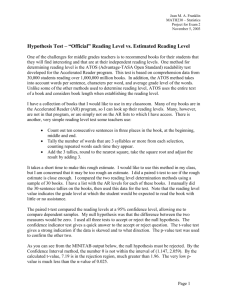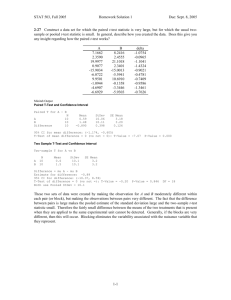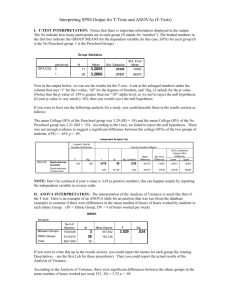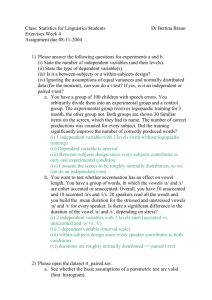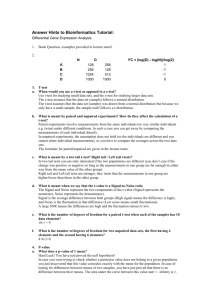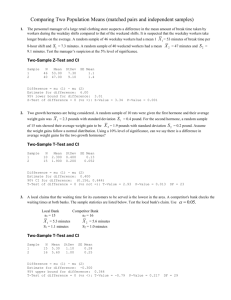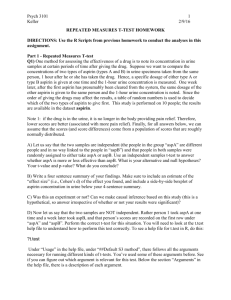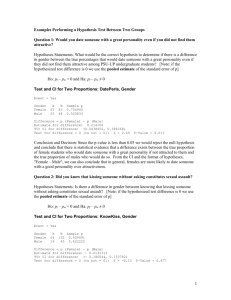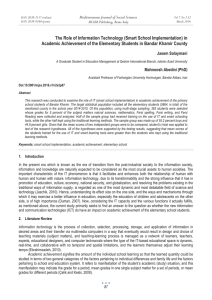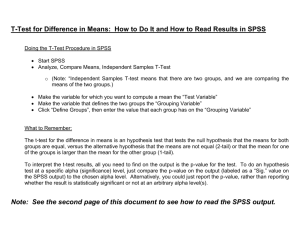t-Test: Statistical Analysis
advertisement
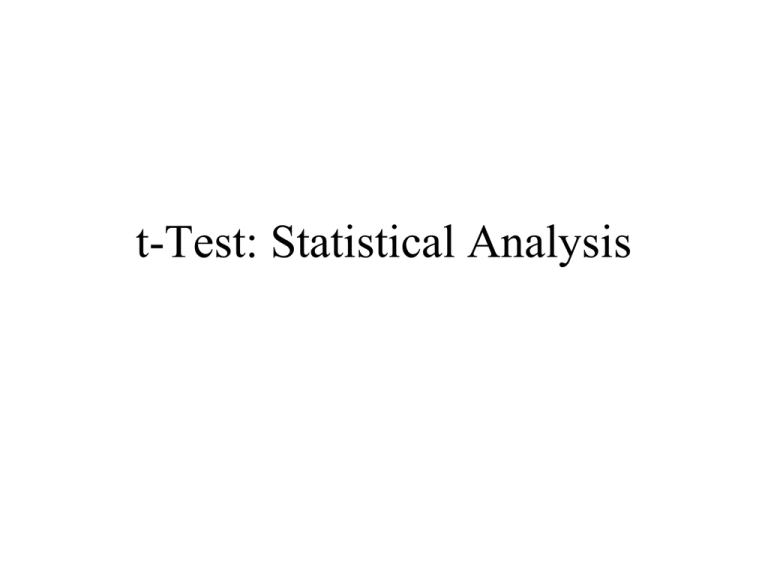
t-Test: Statistical Analysis What is a t-Test? • Statistical test used in hypothesis testing – Example: Comparing Group A to Group B • Used to determine if the difference between 2 mean values is significantly different or just difference due to random chance – Example: Compare the mean between Per. 2 and Per. 3 scores on the Unit 3 exam • when looking at the differences between scores for two groups, we have to judge the difference between their means relative to the spread or variability of their scores. – The t-test does just this! Difference between mean is the same; variability of scores is different! t-Test Formula • The formula for the t-test is a ratio. • The top part of the ratio is just the difference between the two means or averages. • The bottom part is a measure of the variability or dispersion of the scores. How to Interpret Your t-Test Results • You will need: degrees of freedom – the degrees of freedom is the sum of the persons in both groups minus 2 • You will need: computed “t” value • You will need: a “table of significance” • Use the degrees of freedom & the “t” value to look up the probability of these two groups being the same – p-value = 0.6; 60% chance that two sets of values came from the same group (differences due to chance) – p-value = 0.1; 10% chance that two sets of values came from the same group (differences due to chance) – p-value = 0.05; if only 5% chance that two sets of values came from the same group (difference is significant!!) Answers to Practice Questions 1a) Is there a significant difference in seedling length in the fresh garlic treatment as compared to the control? YES 1b) Explain how you were able to make this determination. Critical t-value: 2.101 & Calculated t-value: 13.9; this calculated t-value is greater than the critical t-value 2a) Is there a significant difference in seedling length in the fresh garlic treatment as compared to the crushed sprouted bulb treatment? NO 2b) Explain how you were able to make this determination. Critical tvalue: 2.101 & Calculated t-value: .33; this calculated t-value is lower than the critical t-value 2c) What is the probability that the difference between the two groups is due to chance? 50% Let’s do # 6 from Part 2 • 6) When comparing the height of pine trees in two different forests, 32 trees were measured in each forest. The value of “t” was found to be 2.01. How confident are we that the difference in height of pine trees in the two forests is a significant difference? (HINT: For your df, round to the closest number on the chart.) 95% confident that difference seen is a significant difference The data for the beginning of Part 2 is online. Cause or Correlation?
